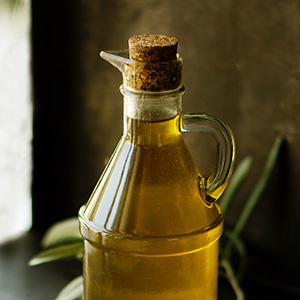Stories From the ER: Things That Have Been Used as Lube
Not everyone is diligent about ensuring that their stock of lube is properly maintained. When the situation arises where lubrication is required and there are not commercial lube products available, people tend to make due. What people find and use as lubricant tends to vary based on why they need lube, what is readily available, and systematically judging substances based on what they know. When people are searching for a lubricant for a procedure such as inserting medications or a suppository, they are generally looking for something that is protective and offers a gel-type texture. However, when people are looking for a personal lubricant, they often search based on viscosity and texture. Here, we will delve into the emergency department files to reveal some of the strange things that have been used as lube.
Jelly
This one doesn’t seem so far fetched due to both the slickness that jelly offers, but also the name jelly can easily be misunderstood for lubricating jelly. There are many cases across the nation each day of people using sandwich jelly as a personal lubricant. While we cannot discount the product based on the gelatinous property and pleasant smell, the sugar and tacky qualities do not make it the ideal substance for using as an alternative lubricant.
Yogurt
It seems as though when people are in need of a lubricant, once they have exhausted the options in the bathroom, they move on to the kitchen. For some, yogurt has been found to be the selected choice for personal lubricants. Here again, we can almost understand the rationale that the probiotics are historically good for you, however, we don’t recommend having them inserted. If, however, the yogurt is unflavored and sugar-free, it may be relatively harmless to use, as long as it is cleaned up well. One of the main concerns of using yogurt is the high sugar content that creates a breeding ground for bacteria.
Oil
Cooking oils, including olive and vegetable oils, have been used for a variety of non-cooking processes for decades. These “off-label” uses include beauty regimens such as hair and skin moisturizers. However, when used as personal lubricants, they can cause irritation to internal tissues, and when used as a medical lubricant, can cause a variety of issues ranging from interfering with medication absorption to breaking down silicone tubing.
Machine lubricants
Again, this one kind of makes sense, only because of the inclusion of the word lubricant as the product name. However, lubricants that are meant for machinery, including engines, doors, and household appliances, contain chemicals that can be damaging to living cells. Some of these lubricants can be caustic to the tough outer skin and can really wreak havoc on internal tissues. Humans are not machines and machine lubricants should not be used on human tissues under any circumstances.
The mission of HR Pharmaceuticals is to provide safe and useful lubricants for use in every internal procedure. Surgilube® Surgical Lubricant is the ideal lubricant for all internal procedures. Its unique formula is paraben-free, latex-free, and water-soluble. This means that it will not cause damage or irritation to human cells and is safe to use internally and externally. The bacteriostatic properties and convenient single-use foil pack options help prevent the spread of infection and prohibit bacterial growth during storage.
For all of your personal and medical lubricant needs, trust HR Pharmaceutical’s Surgilube. Browse our entire selection online today.
